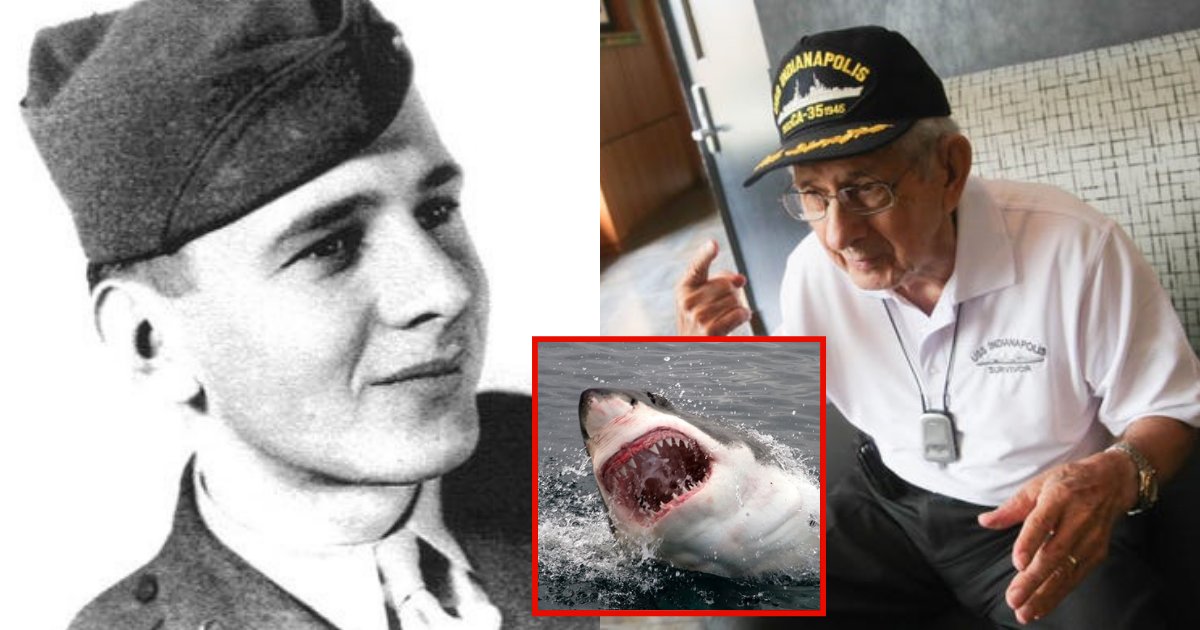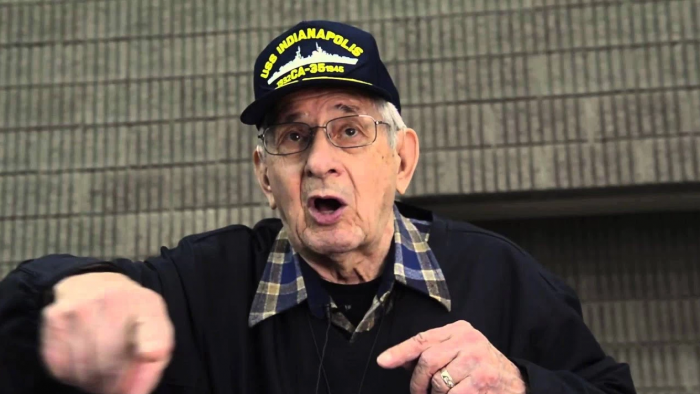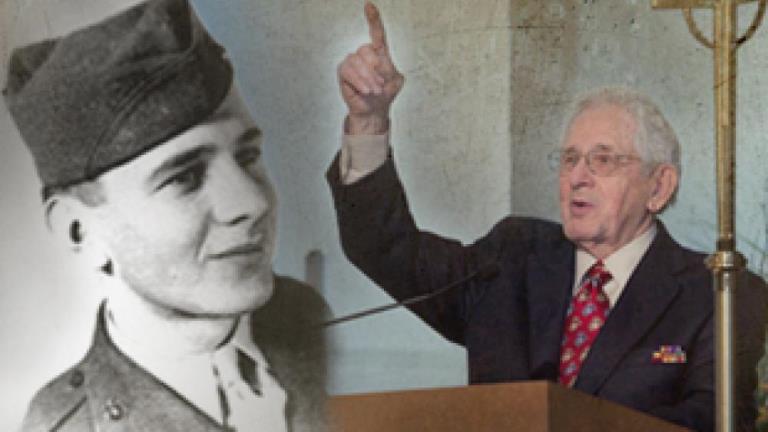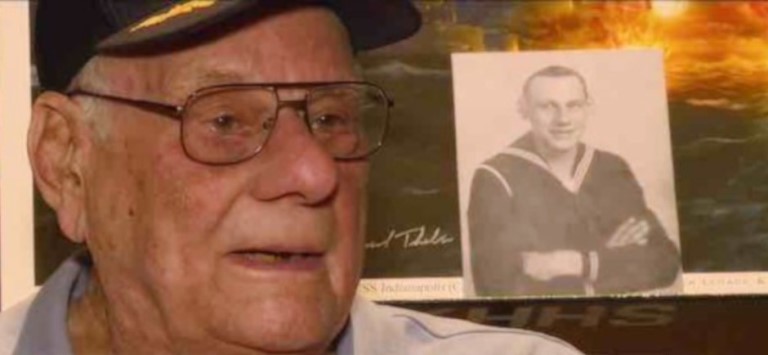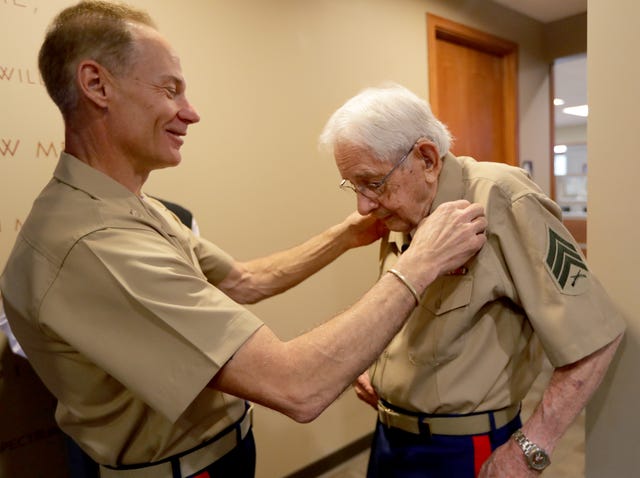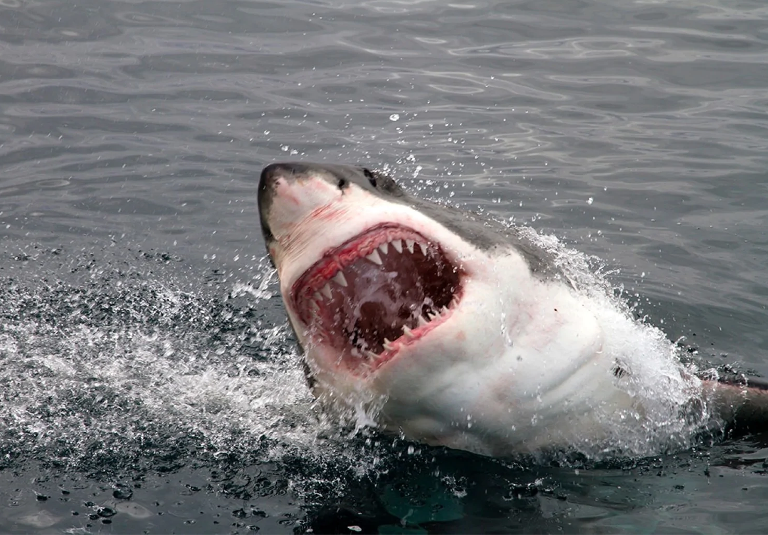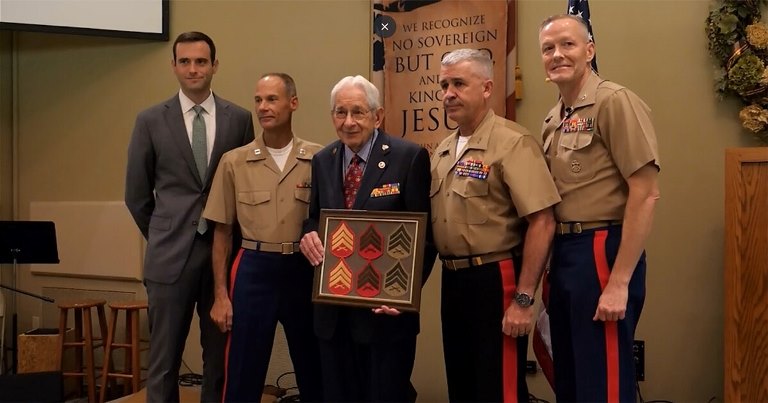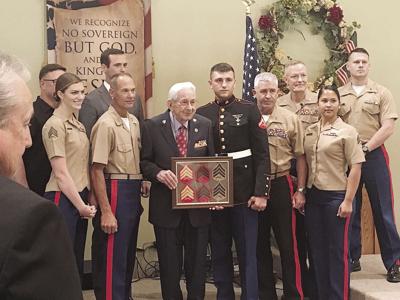Edgar Harrell can still hear the screams of his friends and other sailors as a school of sharks started biting and eating their legs.
Hundreds of men were eaten alive, turning the blue Pacific waters red with blood. The incident has become the worst shark attack in history.
1,195 men on board the USS Indianapolis in 1945 when the vessel was torpedoed and sank, leaving Harrell and others fighting for survival.
Over four days, sailors were attacked by sharks in the middle of the Philippine Sea before they were accidentally found by a friendly bomber plane.
Harrell, who was only 20 years old at that time, said: “All we heard was men being eaten alive. Every day, every night.
“You’d find your buddy and check him and find that he’s disembowelled, or the bottom was gone.”
On July 30, 1945, the Indianapolis was sailing to the Philippines from Tinian Island after finishing a secret mission of delivering uranium for the Hiroshima atomic bomb, which was dropped one week later.
A Japanese submarine then fired six torpedoes and hit the Indianapolis two times.
Harrell, who was on the lookout, said to Sun Online: “One of the torpedoes cut the bow of the ship off. The second exploded under a turret.
“I could see and hear and feel all the water coming in below me, and the ship began flooding.”
He ran to get a life jacket and clung on to a rail as the ship started to sink. “I hung on to that rail looking out into the blackness of the night.
“May I say there’s times when you pray and there’s times when you pray.
“I swam away from the ship and towards a group of marines who had already fled the boat. One was badly injured and he died in my arms within the next hour.”
300 men went down with the ship while 900 others bobbed in the pitch-dark and shark-infested waters. While Harrell and his friends were thankful to have survived the bombers, it quickly became evident that they encountered an even more terrifying enemy.
After a few hours, Harrell was floating with a group of 80 other sailors when the beasts circled around them. They clung to each other to intimidated the sharks but the injured ones floated free of their grip.
“You would hear a blood-curdling scream and look and see someone going under.”
As men’s blood spread in the water, sharks became attracted to the defenseless men. “When you get some 900 boys out there decaying in misery, sharks are gonna swim through there and they’re gonna attack what’s in their road.
“If I’m flopping around in their road, they’re going to take me under, and they only have to hit you once.
“All we heard was men being eaten alive. Every day, every night.”
The men had no food, faced extreme cold at night, and baking heat during the day. They were also dehydrated, which forced others into drinking seawater.
“You could nearly time it after they’d drunk that salt water — within the hour their mind was completely gone, hallucinating,” Harrell said.
The next day, the sailors were able to drink drops of rainwater. However, on the third day, of the 80 sailors Harrell had first huddled with, only 17 were still alive.
A group of five other men floated over to Harrell with a makeshift raft they had made from orange crates and empty aluminum ammunition cases. They pleaded with Harrell’s group to try and paddle closer to the Philippines or they would never be found.
Harrell and his friend Spooner went with the five men. That same day, they split from the group and Harrell found a crate of potatoes floating by.
“They were rotten. But solid on the inside,” he recalled. “That’s all the water and food that I had for four-and-a-half days.”
The next day, an American bomber accidentally found them while on an antisubmarine patrol. The US Navy had no idea about what happened to Indianapolis until that point.
Robert Adrian Marks was the first to arrive on the scene. “He saw sharks attacking boys, he saw stragglers out in the distance.”
That evening, seven ships arrived and pulled the remaining survivors to safety. Of 1,195 crew, only 316 were left alive.
The sailors were taken to hospital and were rewarded the Purple Heart for bravery.
“Only the providence of a sovereign God allowed me to survive, and I give Him credit in my book Out of the Depths, plus every time I speak,” Harrell expressed. “He never lets me forget.
“I still relive those terrible days and never forget to give my lord and saviour all the credit.”
What are your thoughts on this? Let us know in the comments section and SHARE this story with your family and friends!


